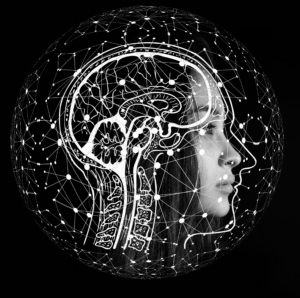Anyone who has ADHD and has found their cellphone in the freezer realizes that memory lapses are a common symptom of ADHD.
It may not be about a misplaced cellphone. Impaired attention can actually make it harder to hold information one’s working memory—the level of memory that holds information to be used in the present. Long-term memory holds deeper information, such as your name, birthday. and life events. Short-term memory or working memory keeps important information forward in your mind, such as where you set down your cellphone while bringing groceries into the kitchen.
Individuals who have ADHD tend to have underperforming working memory. This underperformance causes people to forget what they just did, where they placed something, or even what they meant to say while speaking.
“If your attention skills are weak, you have constant lapses in what enters your working memory,” says Jan K. Buitelaar, MD, a professor of psychiatry at Radboud University Medical Centre in the Netherlands. “So, these connections are much harder to make.”
ADHD and memory
Bernhard Spitzer, PhD, is a cognitive neuroscientist at the Max Planck Institute for Human Development in Germany. He leads ongoing research on memory and its relationship with ADHD. The project, named DeepStore, is planned to continue through 2026. His team is also researching how other conditions can affect memory and memory loss as part of aging.
“How storage of working memory is distributed in the brain still needs explaining,” Dr. Spitzer says. “By the end of our research, we hope to have a better understanding of the dynamics of working memory and how it provides us with just the right information at just the right time for whatever task is at hand.”
Memories are created by connections of neurons within the brain. The tweaking, or miniscule adjustments in these connections, changes how the neurons communicate with each other. Proteins, the building blocks of our cells, are adjusted with these tweaks, encoding our memories into our brains. The process happens quickly with few adjustments for short-term memories, but for memories that will last for hours, days, or years, the neurons make new proteins that are built into the synapses of the brain.
For the brain with ADHD, inattention can interrupt the process of memory-making. How the brain takes in information, evaluates its immediate need for the information, and then files information away can also be disorganized. This can cause the brain to process the information in less useful ways than the brain that does not have ADHD. It can even cause the memory to be badly recorded or not entered into long-term memory at all. For working memory, it can mean the information is immediately dropped or stored in a way that recall is not easily accomplished.
Improving memory
Forgetfulness and memory challenges are a hallmark of adult ADHD. For children, these weaknesses can make learning difficult and affect grades. Challenges with memory associated with ADHD lead some people to worry that their cognitive health is declining; a specialist who is knowledgeable in both age-related memory loss and ADHD can determine if an individual should be concerned.
The good news, though, is that memory can be improved and strengthened. Some lifestyle supports can increase one’s ability to recall events, while other supports help to delegate memory with notebooks, routines, and calendars. Many people have found that heart-healthy meals and physical exercise help to improve their memory.
A few tools that can help with memory:
- Calendar apps that alert you to upcoming important dates or events or help you stick to a routine with digital reminders.
- Mindfulness and meditation practices are helpful for some people.
- A notebook or journal to jot down thoughts, ideas, or draft to-do lists can carry items for short-term memory. The practice of journaling about one’s day also helps the brain to form those longer-term memories and acts as a record of events.
- Diets that are heart-healthy have shown positive results for brain health. While diet alone won’t improve your memory, it can provide your brain with the nutrients to build the connections that encode memories better.
Lastly, think of your memory as another muscle in your body. What kind of workouts are beneficial for it? New hobbies, new books, travel, and new experiences all help to exercise the mind and the memory. Puzzles, word challenges, building, or sewing all help the brain to stretch and move different parts within it that can help with better memory creation.
All the above can be helpful, but ADHD symptoms will continue to have an effect on memory formation. Treating symptoms and working with a professional remain an important part of brain health.
Learn more about ADHD, memories, and the brain:
- Getting Older with ADHD: What Does “Normal Aging” with ADHD Look Like?
- The Science of ADHD
- Digital Intervention Software: “Brain Training” for ADHD
- Reading Comprehension and Executive Function
- Keeping Organized Goes Beyond a Task List
- Green Time for ADHD
- Executive Function Issues and ADHD
Join the discussion: What tools or tips would you suggest to improve memory?


